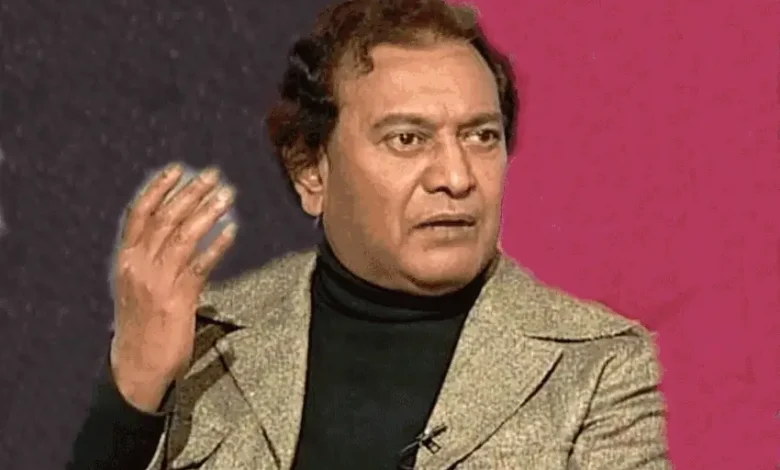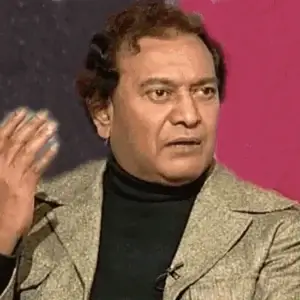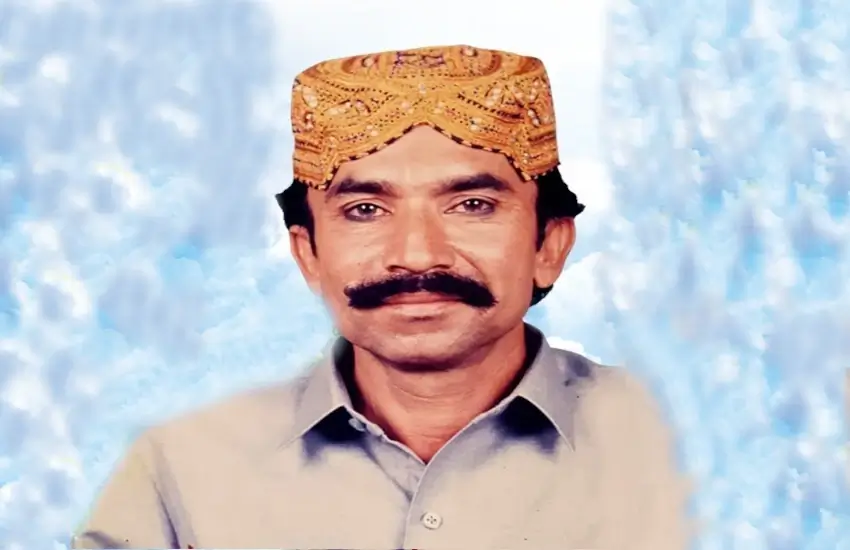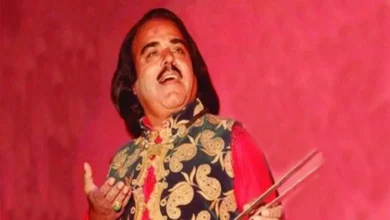A. Nayyar – Bio, Top 40 Best Pakistani Filmi Music

A. Nayyar is the most popular Pakistani film music artist, in the golden age of Pakistani cinema, few voices could captivate audiences like A. Nayyar. His mastery of both folk and classical music enabled him to create a unique sound that resonated deeply with the audience. As a playback singer, he brought countless films to life, leaving an indelible mark on the industry. A. Nayyar’s contribution to Pakistani film music was immense, and his legacy continues to inspire artists and listeners alike.
Best A. Nayyar Pakistani Flimi Music Download
Biography and Early Life
Arthur Nayyar, known worldwide as A. Nayyar, was born in Chak No. 148/9.L, Renson Abad, a small village in Sahiwal District, Punjab, Pakistan on April 14, 1950. Brought up in a Christian family, he spent his working years in Arifwala before moving to Lahore. It was in Lahore that Nayyar’s passion for music began to develop.
He went to St. Louis. Francis High School in Lahore, and fell in love with music. After completing his schooling he entered Foreman Christian College, one of the most popular institutions in the county. Despite his academic pursuits, Nayyar never lost his love for music. He grew up listening to the great musicians of the time, such as Salim Raza, Talat Mehmood, and Muhammad Rafi, who became his earliest influences.
A. Nayyar The beginning of a musical journey
A. Nayyar’s journey in the world of music began in 1974 when he first appeared on television in the program “Naye Funker”. The show was a platform for new artists to showcase their talents, and Nayyar’s performance caught the attention of many in the industry. The soundtrack was helped by noted director Riaz Shahid who was looking for a new voice for his upcoming film Bahisht.
In Bahisht (1974), Nayyar sang “Yunhin Din Kat Jayen”, which quickly became a hit. The soulful and emotional lyrics marked the beginning of Nayyar’s illustrious career in the live music industry. The music of this song is composed by A. Hameed and the lyrics are written by Tasleem Fazli. The success of the song opened doors for Nayyar in the Pakistani film industry.
Ahmad Rushdie with Ahmad Rushdi
A. Nayyar’s talent is undeniable, but like many great artists, he had a mentor who helped him hone his art. That mentor was none other than Ahmed Rashdi, one of Pakistan’s most celebrated percussionists. Rushdie played a key role in shaping Nayyar’s career, teaching him how to play music subtly and how to present songs that reached the audience emotionally
Nayyar often credits Rushdie with his success, acknowledging that the lessons he learned from him were invaluable. This guidance not only helped Nayyar survive but also thrive in a competitive industry. Under Rushdie’s guidance, Nayyar’s voice matured and he developed a style uniquely his own, blending classical and modern elements to create a timeless and relevant sound.
A. Nayyar Rise and make a name for yourself
By 1970, A. Nayyar had established himself as one of Pakistan’s leading classical musicians. His voice was in great demand and he was known for expressing deep emotions through music. Songs like “Yuhin Shaam Dhaal Jaaye”, a duet with Rubina Bader, proved his versatility and cemented his position in the industry.
“Yuhin Shaam Dhal Jaye” is especially important because it highlights Nayyar’s ability to support other artists. The song featured in the feature film became an instant hit. The music of A. Hameed and the lyrics of Tasleem Fazli paired with the songs of Nayyar and Badr created a magical experience for the audience.
A. Nayyar Dominance in the 1970s and 1980s
In the 1970s and 1980s, A. Nayyar’s voice became synonymous with Pakistani cinema. During this time he worked closely with another famous vocalist, Akhlaq Ahmed. The two were often compared to each other, but they both bring their unique style to the table. While Ahmed Rushdi remained the dominant force, Nayyar and Akhlaq Ahmed carved their niche in the industry.
This was a very creative period in Pakistani cinema, with Nayyar at the forefront. His collaborations with various singers and songwriters produced some of the most memorable songs in the history of Pakistani cinema. Be it a romantic feast or an upbeat dance number, Nayyar’s voice can elevate any song.
Outstanding awards and achievements
A. Nayyar’s contribution to Pakistani music has not gone unnoticed. Throughout his career, he received numerous awards, the most prestigious being the Knicker Award. He won the First Nigger Award in 1979 for his work in the film Aag. More awards followed in 1985 for Jeenay Naheen Doon Gi, in 1988 for Ghareboan Ka Badshah, and in 1989 for Takat Ka Tufan. His consistent performance earned him another Nigger Award in 1991.
Besides the Nigar Award, Nayyar was also honored with the Pride of Performance Award by the President of Pakistan in 2018. The award is one of the highest civilian honors in the country and was a fitting recognition indicator that Nayyar has had a lasting impact on Pakistani music.
Popular songs by A. Nayyar
A. Nayyar’s discography is filled with songs that have become an integral part of Pakistan’s musical heritage. His most famous works include:
- “Yunhin Din Cut Jayen” – Featured in Bahisht (1974), this song is a poignant reflection on the passage of time.
- “Pyar To Ik Din Hona Tha” – From the movie Kharidar (1976), this song, a duet with Naheed Akhtar, captures the inevitability of love.
- “Sathi Mujhay Mil Gaya” – This upbeat track from Jasoos (1977) showcases Nayyar’s versatility.
- “Milay Do Sathi Khili Do Kaliyan” – A romantic duet from Amber (1978), this song remains a favorite among fans of classic Pakistani cinema.
Each of these songs not only Nayyar’s vocal strength but also his ability to express a wide range of emotions, making them timeless classics
Personal challenges
Despite his success, A. Nayyar’s life was not without challenges. In later years, he struggled with heart disease, which destroyed his health. The death of his 28-year-old son was a devastating blow, and he never fully recovered. This personal tragedy combined with the decline of the Pakistani film industry left Nayyar in financial trouble.
The once-celebrated unionism had gone large, allowing Nayyar to weather his struggles in obscurity. But despite these challenges, he remained beloved by his fans and peers, and his contributions to the music industry continued to be upheld.
Pakistani musical heritage
A. Nayyar’s legacy in Pakistani music is undeniable. He was a pioneer who helped define the soundtrack of Pakistani cinema during its golden years. His influence can be heard in the work of many musicians who came after him, and audiences still play and enjoy his music today
Nayyar’s ability to adapt to genres and dedication to his craft set him apart from many of his contemporaries. He was not only a percussionist but also an artist who understood the power of music to tell stories and stir emotions. His work continues to inspire new generations of musicians and will remain an integral part of Pakistan’s cultural history.
Death and Funeral
On the evening of November 11, 2016, A.S. His death marked the end of an era in Pakistani folk music. He was buried at the Christian Cemetery on Jail Road in Lahore, surrounded by friends, family, and fans who came to pay their respects.
Nayyar’s death is a great loss to the music industry, but his legacy lives on through his music, which continues to be a source of joy and inspiration for many
A. Nayyar’s influence on Pakistani cinema
U. to soundtrack a Pakistani film. Nayyar played a key role. His voice was often the emotional backbone of the films he worked on, giving characters and plots depth and resonance. Unlike many of his peers, Nayar could adapt his voice to a wide range of genres, from romantic carnivals to ballads.
His influence extended beyond just music. Characterized by emotional depth and technical precision, Nayyar’s style set the standard for future musicians. He helped elevate the role of musical theater in Pakistani cinema, making it an integral part of storytelling.
The importance of rhythm
One of the most unique and important aspects of South Asian cinema is the soundtrack. Unlike many Western films, where actors usually perform their songs, South Asian films often use musical actors to voice musical numbers this allows the actors to focus on their roles while the musicians bring the music to life.
A. Nayyar was a master of this craft. His ability to match his voice to the on-screen emotions of the actors made him a favorite among directors and audiences alike. He understood the importance of playback singing in enhancing the overall impact of a film and dedicated himself to perfecting this art form.
Late years and failing health
As the Pakistani film industry grew, A.K. New music and the rise of contemporary pop have changed the industry, putting aside many of the old guard. This was a difficult time for Nayyar. His health issues compounded the challenges he faced, making it difficult for him to continue his work.
Despite these hardships, Nayyar remained a respected member of the band. He continued to play whenever he could and never lost his passion for music. His last years were a physical and emotional struggle, but his contribution to Pakistani music ensured that he would not be forgotten.
Conclusion
A. Nayyar was more than just a musician; He was a pioneer who helped shape the soundtrack of Pakistani cinema. With his melodious voice and emotional depth, his voice brought countless songs to life and left a lasting impact on the industry. Though he faced many challenges in his later years, Nayyar’s legacy as one of Pakistan’s greatest singers endures.
His classical music still resonates with listeners today, a testament to his talent and dedication. A. Nayyar’s contribution to Pakistani music will be remembered for generations to come and his impact on the industry is undeniable. For more Pakistani Filmi music visit our website Media Music Mania.
FAQs
What is A. Nayyar’s real name?
A. Nayyar’s real name is Arthur Nayyar.
When did A Nayyar start his playback music career?
A. Nayyar started his playback music career in 1974 with the song “Yunhin Din Kat Jayen” from the movie Bahisht.
How many nigger awards did A Nayyar win?
A. Nayyar won a total of five Nigger Awards during his tenure.
What are some of A. Nayyar’s famous songs?
A. Some of A. Nayyar’s most famous songs include “Yunhin Din Cut Jayen,” “Pyar To Ik Din Hona Tha,” and “Sathi Mujhay Mil Gaya.”
When did A. Nayyar pass away?
A. Nayyar passed away on February 11, 2016, in Lahore, Pakistan.








